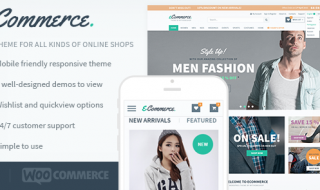Imagine the following scene- You are sitting in a library at the computers and see someone walking around with a service dog. Or maybe they have dark glasses on and are using a cane. You watch in surprise as they sit down at one of the computers to use it.
Why are they doing that? Blind people can’t use computers or get online to use the internet. Right?
This is a common and, unfortunately, very detrimental misconception. Just because a person lacks normal vision does not mean that the internet and its wealth of knowledge are off-limits. At least, it shouldn’t be.
However, for far too many visually impaired people and those with other disabilities, using the internet is much more difficult than it is for a normal ‘able-bodied’ individual. That is where understanding what is website accessibility and why it is so important comes into play.

Contents
What We Mean by Accessibility
The world wide web is fundamentally designed to work for everyone who can access it no matter the device they use, where they are located, how rich or poor they are, or what their educational or physical limitations might be. It is meant to be an accessible source of information and connectivity for everyone. This means the internet should always be easily accessible to people with any sort of hearing, sight, mobility, cognitive or other disability.
Someone without the use of their hands can use computers to type what they say to do searches online. An individual with vision problems can use readers that can dictate what is on the screen for them. People with mobility issues can more sile navigate a website designed with their limitations in mind. And people with other limitations and obstacles can adjust colors, contrast, size, and other elements to make the web easier to access and read.
That is how it should work. However, many websites are not designed with accessibility in mind and remain difficult or impossible for people with disabilities to use as intended. This is where the need for web accessibility becomes critically apparent.
Why Web Accessibility Matters?
Web accessibility is achieved when the websites, tools, and technologies of any online source or content are designed and developed so that people with disabilities can use them. It looks at the most common access points online through the experience of someone with a disability.
With improved accessibility to the internet and its content, people can:
- Access, perceive, understand, read, navigate, learn from, and interact with the web
- contribute to the information, connectivity, knowledge, and experience of the internet
Web accessibility encompasses any disability that can impact the user experience online, including:
- Auditory
- Visual
- Speech
- Cognitive
- Neurological
- Emotional
- Physical
Web accessibility also benefits people without disabilities. For example:
- people using devices other than a standard computer to get online and browse
- People with age-related difficulties and challenges that aren’t necessarily disabled
- people with short-term disabilities due to injuries, surgeries, or medical conditions
- people with what is known as situational limitations that impact their experience online
- People stuck with a slow connection, expensive bandwidth, or access limitations
Keeping websites and the internet as a whole accessible to everyone is what it was created for, and it is vital to the health of societies and the world as a whole that this accessibility be preserved.
The Legal Aspect of Ensuring the Web Remains Accessible
Accessibility to information and connections online is critical for individuals, businesses, and society. Access to this sort of information is defined as a basic human right in the United Nations Convention on the Rights of Persons with Disabilities (UN CRPD).
People living in rural areas, small towns, and remote areas deserve the same access to the web that is allowed in major cities. Likewise, those with disabilities have the right to the same level of access online that a non-disabled person can enjoy every day.
There is also a strong business case for accessibility. The accessibility of websites and online content can drastically improve overall user experience and satisfaction when engaging with certain web content.
This means someone with vision, auditory, or other limitations is more likely to visit and do business with a company that has an accessibility-friendly website design and features. Accessibility can significantly improve brand image, company standing, and customer interactions.



